Interview with President Aoun’s ex-advisor Elie Hatem
Elie Hatem is Barrister-at-Law at the Paris Bar Association and at the International Criminal Court of the Hague. He has been the advisor of current President Michel Aoun of Lebanon, during the exile of this latter in France. Dr. Elie Hatem was also the advisor of former Secretary General of the United Nations, the late Boutros Boutros-Ghali. He was close to Rauf Denktash in Cyprus and to many Heads of States around the world. He remains the political advisor of Mr. Jean-Marie Le Pen, the founder of the National Front in France, and member of the steering committee of Action Française, founded in the last century by the famous Charles Maurras. He is of Lebanese origin and the direct descendent of Sheikh Eid Hatem, who was the Administrator of Mount Lebanon in 1861.

Mr. Hatem let’s start with the latest news. What is your opinion regarding the UN Tribunal’s ruling on Rafik Hariri’s killing? What does it mean, and do you think it will have repercussions on Lebanon’s domestic dynamics?
The assassination of Rafik Hariri in 2005 was a political act. Its objective was to lead Lebanon back to a phase of instability, 15 years after the end of the war, decided internationally under the auspices of the United States of America. This assassination coincided with the start of an American-Zionist political project to sow discord in the Middle East between the different communities there: the invasion of Iraq and dislocation of the Iraqi State, the Arab spring, etc… By accusing Syria of being behind this act, pressure was put on the latter to push her to leave the country she occupied with the US’ benediction. After blaming Syria, they tried to accuse Hezbollah in order to create tension between Sunnis and Shiites in Lebanon. We are in the same situation today. Without tangible proof, the Tribunal tried to accuse a stooge by recalling his time in Hezbollah.
But the court could not determine the sponsors and will never be able to do so. Indeed, this act was carried out by secret services in a sophisticated way. Like all political crimes committed this way, we will never know who is behind it. Do we know who assassinated President Kennedy? Mrs Benazir Bhutto? Can we know for which intelligence services worked Salim Ayyash (the person whose guilt was established by the Tribunal)? We all know that there are members of Hezbollah who work for Israeli intelligent services like Mohamad Shorba, who was a security official in this organization, or another one who played a role in the assassination of Imad Mughniyeh, or Ali Rafik Yaghi, etc… I don’t think that the unclear decision of this Tribunal will have real repercussions given that it did not satisfy anyone. It only showed how an international institution that cost 1.5 billion dollars is unable to conduct a serious investigation.
The Beirut port blast shocked the whole world. Speculations are running wild, but there still is no evidence regarding whether it was an accident or sabotage. Could you briefly share your views on the issue?
All hypotheses are possible: a pure accident or a terrorist act. But it is rather strange that this explosion took place in a convenient context, 3 days before the judgment which was to be rendered by the STL concerning the assassination of Late Prime minister Rafik Hariri, which had to be postponed to August 18 after the explosion. In addition, the inhabitants of Beirut all heard the passage of military planes a minute or two before the explosion. President Michel Aoun has not ruled out that a missile could be behind the detonation which was intended to cause an instantaneous explosion of this magnitude. This explosion has benefited those who want to excite public opinion, both Lebanese and international, turning it against President Michel Aoun, against the state and highlighting Hezbollah in order to create chaos and a vacuum of power, a constitutional crisis and the end of Lebanese institutions, followed by a return to military conflicts with foreign interventions.
The Lebanon explosion and the Israel-UAE deal in the eyes of the intelligence community
“Hezbollah should be integrated into the Lebanese army”
All things considered, do you believe that Hezbollah is a boon or a burden for the Lebanese people? Why?
Hezbollah is both: a political party and a militia. It is moreover the only militia which was able to maintain its weapons after the agreements of Taif of 1990, which demilitarized all militias with the exception of Hezbollah. However, these agreements which were signed in Saudi Arabia had America’s blessing, and were designed in order to leave open the possibility of sparking an civil war in Lebanon. Knowing that the Lebanese Shiite community had a creeping demography, they thought they could create fear in other communities, especially Christians. Because of the military power of this militia, it was thought to be able to rekindle the feeling of community imbalance and provoke, in due course, a civil war. But, starting with the arrival of Hassan Nasrallah as head of Hezbollah in 1992, the party evolved. In 2000 and after the Israeli withdrawal from southern Lebanon, (this withdrawal was attributed to Hezbollah), this political group became the axis of the national Lebanese resistance against the Israeli occupier. It should be noted that Israel still occupies a piece of the territory of the south of Lebanon. Moreover, Hezbollah receives technologically advanced weapons, more powerful than those of the national army. Indeed, the United States, which is arming the Lebanese army, refuses to provide its newly sophisticated weapons so it will not be able to counter the Zionists.
The ideal way to solve this dilemma will be to integrate the Hezbollah militia into the Lebanese army (under a special battalion) and take advantage of the good relations that Hezbollah maintains with Iran in order to be able to obtain sophisticated weapons to ensure the defense of Lebanon from the Israeli enemy.
Dr. Marwa Osman: “There’s anger on the streets of Beirut after the explosion”
In the near future, what developments do you foresee in Lebanon?
It is very difficult to predict any developments. It all depends on the regional context. Lebanon was the victim of a political project aimed at destroying its multi-communitarian model. The contexts have been exploited for this purpose without result. I hope that the Lebanese succeed in overcoming their divisions and that they do not fall into the trap of those who want to destroy their institutions via different pretexts. They must maintain their institutions and their State, despite its present imperfections. This is a time for wisdom. The Lebanese must maintain national cohesion, take advantage of the friendships and links that communities or political and social groups have with foreign countries or foreign powers in the exclusive interest of the Nation, without being subservient to foreign powers.
“A Sunni-Shiite conflict in Lebanon could quickly be exported to Iraq”
Israel and the UAE recently signed a peace deal. What do you think is the main purpose of the agreement? What other Arab countries do you think will normalize their relations with Israel next?
Israel destroyed the Arab world and did the same with the Palestinian resistance by creating dissensions within it between Fatah and Hamas. With the Unites States of America, they created conflict between Muslims and pushed for the emergence of political Islam. They did it, of course, in Afghanistan and at the same time in Iran. Then, they pushed for war between Iraq and Iran (paradoxically the latter was receiving help from Israel) with the aim of creating a Sunni-Shiite war and the break-up of Iraq. Today, they have managed to increase this tension between Sunnis and Shiites, especially during the war in Yemen. The Emirates and other Sunni-majority Arab countries fear Shia Iran more than Israel. This explains the normalization with Israel, to the detriment of the Arab cause. I think that the Sultanate of Oman will follow, as well as Bahrain, Saudi Arabia, Kuwait, Sudan and Morocco because all of these countries have informal relations with the Zionist entity.
Is Iran becoming more and more isolated in the region?
Sure. But I think that the main aim is not to isolate Iran, but to instrumentalize this country which is considered the “protector of the Shiites” in the Sunni – Shiite conflict. In addition, the technological advances and progress that this country has made in recent years bothers the United States and Israel, who want to see all the countries of the Middle East regressing. Sooner or later, Iran will no longer be targeted like it is today. In addition, it must be added that this country has done its part to thwart the American-Zionist political project of bringing out Sunni extremism (Daesh, Al Nusra, Al Qaida, etc…).
As the Beirut port has become unusable, Iran’s only way to reach its ally in Lebanon is by land via highways passing through Iraq & Syria. Do you fear a new destabilization process on this axis?
Unfortunately, yes. The logic of things is that a Sunni – Shiite conflict in Lebanon could quickly be exported to Iraq where the institutions are weak. Then, it will return to Syria which, for the moment, is difficult to destabilize thanks to the Russian intervention which allowed it to safeguard its institutions.
“We need the emergence of new powers to counter American superpower”
French President Emmanuel Macron presented himself as the sole saviour of the Lebanese people during his trip to Beirut. Does Macron wish to restore French colonial rule in the Middle East?
I do not think so. President Emmanuel Macron wanted to reconnect with Lebanon. In fact, France has been ousted from the Near and Middle East since the coming to power of President Nicolas Sarkozy, who looked at this area of the world solely through the Israeli prism. He had also been widely supported by the Israelis and the Americans to win the elections. Since then, French foreign policy has been totally subservient to NATO and the United States. This was continued under François Hollande. France therefore abandoned Lebanon and then Syria. President Macron wants to straighten out French diplomacy. He reached out to Russia as he had with Iran. He came to reconnect with Lebanon during this visit. Some Lebanese, made desperate by the situation, had sentimental reactions which were misinterpreted especially by those who do not want France to return to the international scene.
This reminds me of the reaction to General de Gaulle’s press conference in 1967 a couple of days after the attack of the Airport of Beirut by Israel, during which he pronounced the famous sentence which provoked serious controversy concerning Israelis: “an elite people, sure of themselves and domineering“…
Emmanuel Macron didn’t manage to contain the Yellow Vest protests, but tries to meddle in other nations’ internal affairs. Do you see a contradiction in his mindset?
Indeed, President Macron has encountered several internal difficulties, including popular protests (those of the Yellow Vests). Some have attributed this movement to outside hands trying to weaken and destabilize him. From a domestic policy perspective, he may not have chosen a good team to deal with the internal problems of France. But, in foreign policy, I think that he is attempting to bring back France to the political scene and to emancipate his country from American domination. By the way, he described NATO as being “in a comatic state”. Today, we need the emergence of new powers to counter the American superpower which, along with the Zionist lobby, conducts direct and indirect terrorism on numerous nations. Thus, France wants to reconnect with its diplomatic traditions by upholding international law and ensuring a balance on the international political scene. I also sent a note, in this sense, to President Macron after his election, and I see that the ideas developed in my long study are being taken into account. I don’t know if this is a coincidence or not…
What was your first reaction when you saw how French President Emmanuel Macron treated Lebanon’s President Michel Aoun?
Looking at the short clips on television and out of context, I thought it was a discrediting of the Lebanese Head of State, but after talking to President Aoun on the phone and then to his daughter who takes care of him, I understood what happened. Indeed, President Aoun is 85 years old. The people around him at the Presidential Palace and his family are very afraid he might catch the coronavirus. This would not only pose a danger for his person, but also for Lebanon by creating a crisis resulting from the impediment of the President of the Republic, or even a constitutional vacuum. Thus, President Aoun’s entourage insisted that the French President not accompany him and that he not mix with the crowd. This is what led President Macron to do so, insisting on it several times, in a filial and friendly manner. This just goes to show how much the images and the media can mislead us.
“Today, the new free world is led by Moscow”
What do you think would be the best solution to assure a peaceful coexistence between different religious, ethnic and confessional groups in Lebanon? Is the Taif system outdated?
Inter-community coexistence is embedded in Lebanese sociology. It should be pointed out that the war in Lebanon was never an inter-religious war, although we tried to make this aspect emerge in 1975. It was a war between social communities, not religious ones. I would even say the conflicts have been intra-community, insofar as within each community, we have witnessed internal conflicts between political parties turn into the creation of militias. Differential and plural factors in Lebanon facilitated the interference and fueled divisions.
It is above all necessary to save Lebanese state and institutions first, and to avoid falling into the trap of those who want to undermine the Lebanese multi-faith model which is the antidote to the Israeli ethnocratic and racial model. To do so, it is necessary to suppress political parties responsible for the divisions and to establish direct democracy.
Since the Phoenician period, Lebanon has been made up of city-states. Administrative and political decentralization should be carried out today within this model, allowing each region to have autonomy: a government of the people, by the people, and for the people, with a Parliament and deputies endowed with a special mandate, not a national one.
Of course, at the top of the state a government made up of technocrats with a federative Head of State and mediator could represent the Nation. This is what my ancestor, Sheikh Eid Hatem, envisioned in 1861 when he was appointed General Administrator of Mount Lebanon, thanks to the efforts of Louis-Napoléon Bonaparte. Finally, Lebanon will have to take advantage of its relations not only with Western countries, but also with Eastern ones. It needs to turn more and more towards the new free world: the one which is led by Moscow and has been joined by China, as the political philosopher Alexander Dugin has imagined, and as President Putin has undertaken.







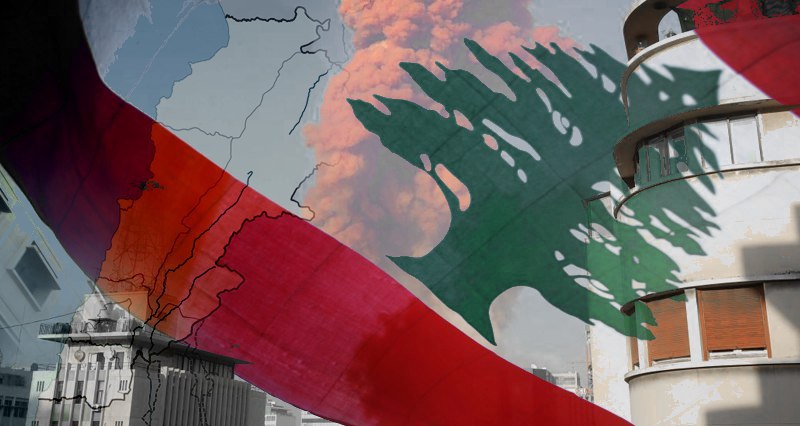

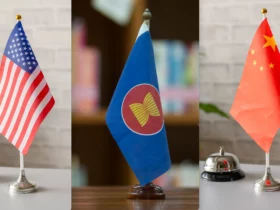
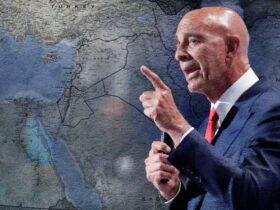
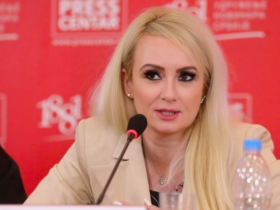
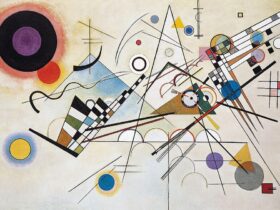


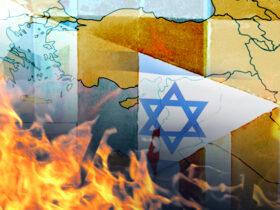

Leave a Reply